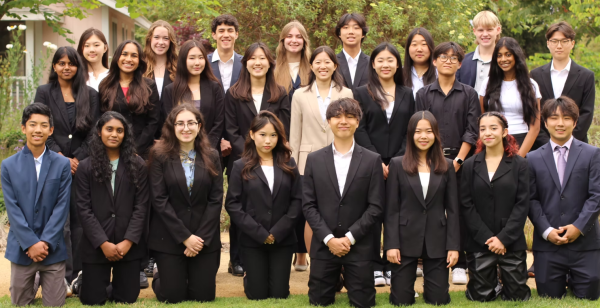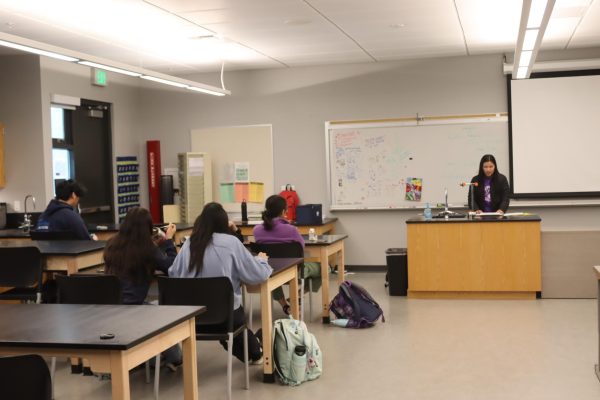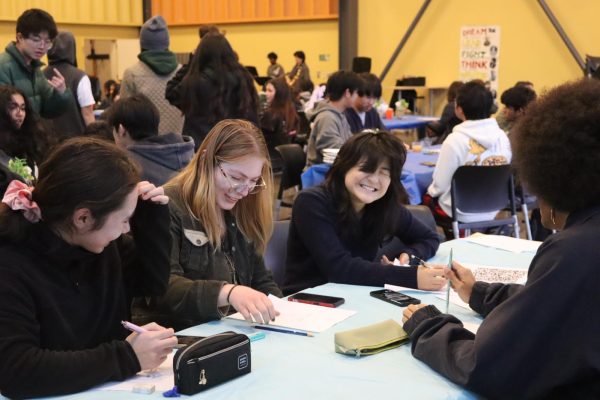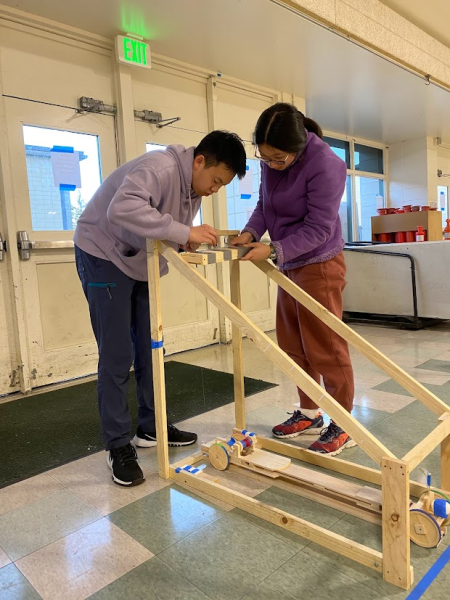COVID-19 is closer than it may seem
Students reflect on COVID-19’s consequences on community
We all know someone who has been hanging out with friends, traveling around or generally just living life unaffected by COVID-19. We can see plenty of examples on social media, or maybe discreetly we have even made the choice to meet up with people ourselves. However, the virus isn’t a distant dream only heard of on the news; it affects all people, including those within our community.
Senior Alexander Yule said he knows how it feels to have someone close affected by COVID-19, after a friend of his who graduated last year caught the virus. The friend tested positive after his roommate notified him that he had gotten it.
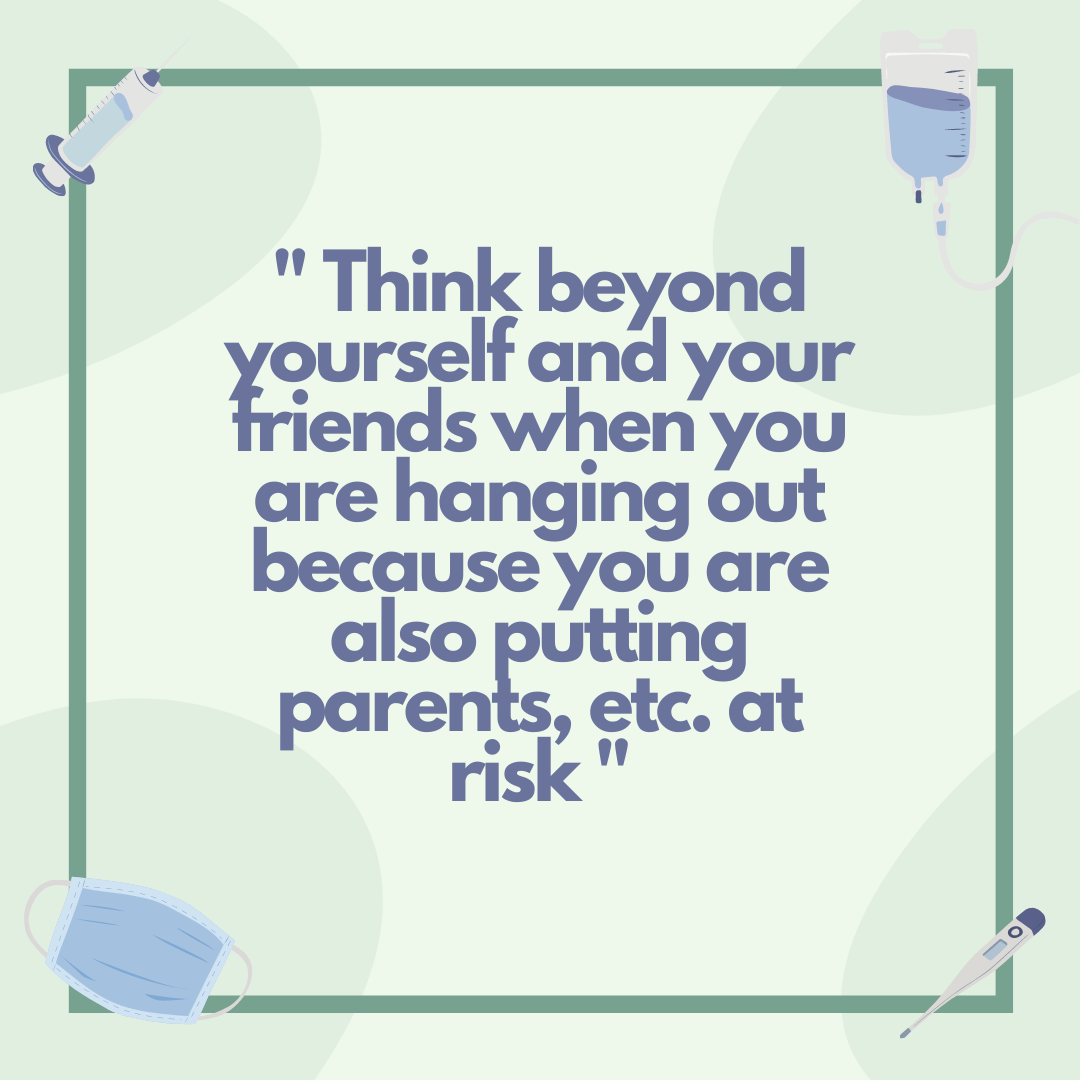
“It was honestly scary and made it a bit more real because despite the whole world being shut down for the past year it hasn’t affected me personally up until now,” Yule said in an email. “The possibility that one of my friend’s lives was in danger, albeit very low risk because he’s 19 and healthy, was quite a shocking realization.”
Similar to Yule, senior Hannah McGoran was surprised to hear her neighbor caught the virus. She knew the whole family was particularly cautious because they have someone who is within the high-risk category in their household.
“When someone you know has COVID-19, it hits a lot closer to home and makes you think more about your actions,” McGoran said in an email. “[Despite this] I believe they were able to manage it on their own. I know their symptoms were on the milder side, so they got a lot of rest and followed home remedies for COVID-19. I also found it interesting how their symptoms were so varied between the different family members.”
Sophomore Elizabeth Kunz also knew a close friend’s family member who caught it, and helped out by calling them once every few days to make sure their family was doing well, she said.
“Luckily, none of them got hospitalized due to coronavirus,” Kunz said in an email. “The symptoms that my friend experienced were fatigue, cough, and fever. Instead of going to grocery stores, they ordered groceries [online] and completely isolated themselves from other friends. They were able to recover after around a week.”
None of the students or their infected friends received the vaccine as it wasn’t out at the time, but they all support its progress and encourage others to consider taking it.
“I think that in the state that the country is right now with COVID, we need the vaccine to restore some sense of normalcy,” McGoran said. “Of course, it will still be a long time before administration is widespread, but every vaccination will help slow the transmission rates.”
Sophomore Eugenie Lanilis also said she thinks the vaccine is crucial, and while it is not generally available to the community yet, precautions should not be disregarded.
“I hear a lot of stories about people with close friends or family getting sick, and that could be anybody I know, or even me,” Lanilis said in a Zoom interview. “So until the vaccine is out for students and teachers, taking precautions is a good first step to take.”
After seeing their friends recover from COVID-19, students reflect on their actions and how other students handle the virus as well.
“[My friend and I] both did not really think that as younger teenagers we would be particularly affected by the [novel] coronavirus,” Kunz said. “This changed for both of us because we realized that anyone can get it, and it can be harmful to anyone. Even if you are not an at-risk age group, there is a very high chance of spreading the virus to friends and at-risk family members.”
Similarly, Yule said he urges people to take safety measures, by limiting interactions and wearing masks continuously in all private gatherings with members outside of one’s household.
“I think the mindset of most people who are being vaguely irresponsible with regards to COVID, and I’m not totally excluded from that because I do still see my friends sometimes, is that if the circle is kept small and closed then its okay,” Yule said. “I think that’s a fair thing to think, so what I would say is be considerate of others and keep the circle of people as small as possible.”
Sophomore Karina Lim said she also thinks students can find ways to meet responsibly.
“It’s natural to want to meet your friends, especially if you haven’t seen them in a while or you’re feeling extra lonely from the lack of face-to-face communication,” Lim said over a Zoom call. “You should keep in mind the situations of others and who they come into contact with, and always adhere to social distancing rules.”
Kunz said she believes HHS students are handling the situation generally well, considering it’s a new experience for everyone involved.
Lim agrees, and said understanding the risks of every action and making reasonable decisions will make the community safer, and ultimately lead to a faster end to the pandemic.
“I think it’s hard to imagine yourself or someone you know getting COVID until it happens, but I hope it doesn’t take that to realize all of the precautions you can take to prevent transmission,” McGoran said. “I know it has a lower mortality rate when it comes to teens like myself, but transmission between two people hanging out will likely end up affecting many others who could experience more severe COVID symptoms. So what I would say is think beyond yourself and your friends when you are hanging out because you are also putting parents, etc. at risk.”
Christine is a senior and super excited to be a senior design editor this year!! After watching The Devil Wears Prada once and being inspired by magazine...



